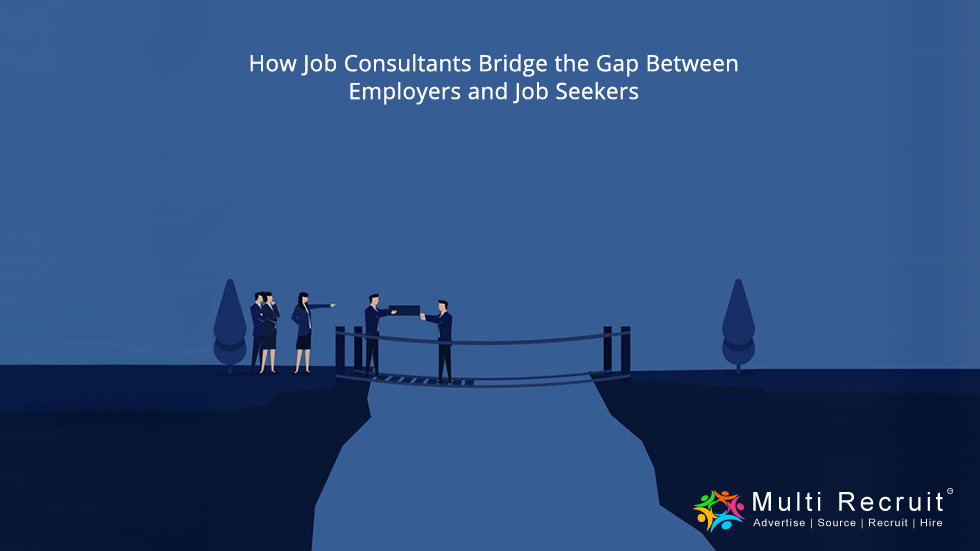Introduction
In the modern recruitment landscape, matching the right candidate with the perfect role is more challenging than ever. Both employers and job seekers navigate a vast, often overwhelming market. This is where job consultants come into play. Acting as a bridge, they ensure that both parties find what they’re looking for. In this blog, let’s delve deep into how job consultants play this pivotal role.
What Is The Skills Gap And Why Does It Matter?
Understanding the Skills Gap
At its core, the skills gap represents a mismatch. On one side, employers have jobs that require specific skills, knowledge, and expertise. On the other, the workforce might lack these precise abilities, making it challenging for employers to fill these roles effectively.
Why Does the Skills Gap Matter?
Economic Impact: Businesses that cannot find skilled labor may see reduced growth potential, impacting the broader economy. When positions remain vacant, it can result in decreased productivity, lower revenue, and stalled innovation.
Stagnation in Innovation: For sectors reliant on cutting-edge knowledge, such as tech or biomedicine, a skills gap can hinder progress. Without the right talent, advancements can slow, affecting an industry’s global standing and competitiveness.
Increased Business Costs: Companies might find themselves investing more in training and development to bring employees up to speed. While training is valuable, excessive upskilling due to a persistent skills gap can strain business resources.
Workforce Morale and Productivity: Hiring individuals who aren’t quite right for a job can put pressure on the existing workforce. They may need to shoulder additional responsibilities, leading to burnout and decreased morale.
Opportunity Costs for Job Seekers: From the perspective of potential employees, the skills gap can result in missed job opportunities. They might find themselves either overqualified or underqualified for available roles, making job hunting frustrating.
Addressing the Skills Gap
To bridge the gap, several measures can be considered:
Early Education Adjustments: Adjusting curricula to align with industry needs can ensure students are equipped with relevant skills upon entering the workforce.
On-the-Job Training: Employers can invest in training programs to upskill their existing workforce, ensuring they stay abreast of evolving industry requirements.
Collaboration: Industries and educational institutions can collaborate, creating tailored programs that produce graduates ready for the demands of specific sectors.
Re-skilling and Continuous Learning: Encourage a culture where continuous learning is the norm. With the pace of change in many industries, skills learned today might be obsolete in a few years. Workers must be adaptable and open to regularly updating their skill sets.
How Job Consultants Play This Pivotal Role?
1. In-depth understanding of Market Dynamics
Job consultants are constantly immersed in the recruitment world. They possess a comprehensive understanding of market trends, in-demand skills, and the evolving needs of industries. This expertise allows them to guide employers and job seekers towards fruitful collaborations.
2. Streamlined Recruitment Process
For employers, the recruitment process can be lengthy and cumbersome. Job consultants, with their established systems and tools, streamline this process, ensuring that vacancies are filled promptly with the most suitable candidates.
3. Tailored Job Searches
For job seekers, sifting through countless job listings can be daunting. Consultants curate opportunities based on the individual’s skills, experience, and preferences, ensuring that they’re presented with roles that align with their career aspirations.
4. Expertise in Skill Matching
Job consultants have a knack for discerning the nuances of a role and matching them with a candidate’s skills. They can effectively identify transferable skills, ensuring that employers receive candidates who can adapt and excel in the given role.
5. Confidentiality and Discretion
Many job seekers, especially those currently employed, value discretion in their job search. Job consultants respect this need, ensuring that a candidate’s information is shared confidentially and only with relevant potential employers.
6. Negotiation Assistance
One of the trickiest phases of recruitment is the negotiation of terms, salaries, and benefits. With their industry knowledge and experience, consultants can aid in this process, ensuring a fair and beneficial arrangement for both parties.
7. Constructive Feedback Loop
Post-interview feedback can be invaluable for job seekers. Consultants provide constructive feedback, allowing candidates to refine their approach in subsequent interviews. On the other hand, employers gain insights into their recruitment process and can make necessary adjustments.
8. Long-Term Relationships
Unlike transactional recruitment processes, job consultants aim to build long-term relationships. They offer post-placement support, ensuring that both the employer and the new hire transition smoothly. This approach often leads to higher retention rates.
Conclusion
In the intricate dance of recruitment, job consultants play the role of choreographers, ensuring that both employers and job seekers move in harmony towards a mutually beneficial partnership. At Multi Recruit, we pride ourselves on our deep industry knowledge, tailored approach, and commitment to bridging the gap between talent and opportunity. Whether you’re an employer aiming to find the perfect fit for your team or a job seeker looking for your next big break, partnering with a seasoned job consultant can make all the difference.
